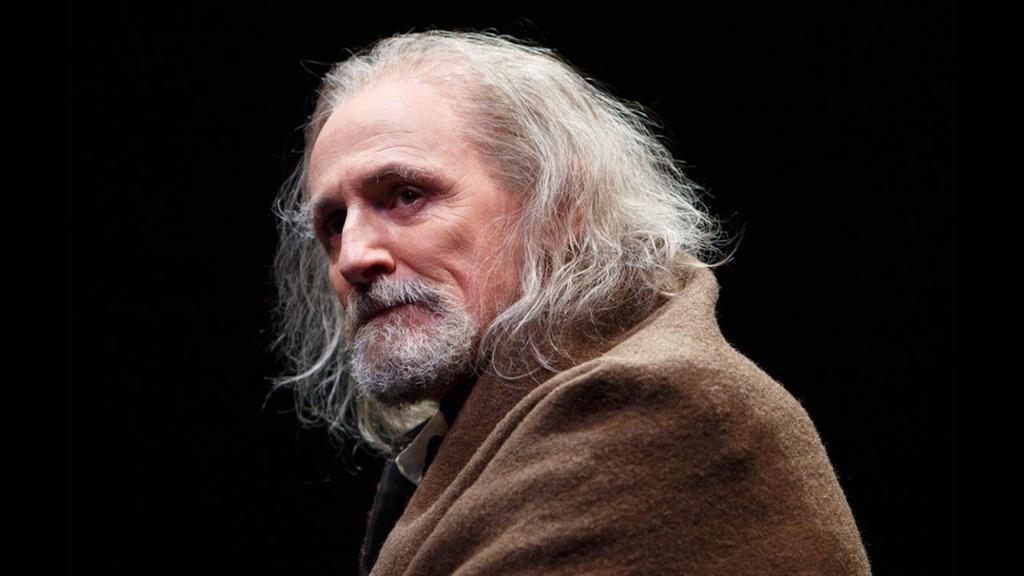
What We Ought To Say
Last night to celebrate the alleged birthday of the Bard of Avon, Canada’s Stratford Festival streamed their production of King Lear. As described on the their website, “A kingdom divided, a family destroyed, the faithful banished and the hateful left to wreak inhuman havoc in the realm.” Sounds depressing but as Northrup Frye once said, nothing excellent is ever depressing and this production is excellent.
Old King Lear divided his kingdom between his three daughters and asks them to profess their love for him. Goneril and Regan offer professions of love which are obviously nothing but flattery followed by a scheme to harass their father into madness. Cordelia refrains from any flowery profession of her love, is left portionless, but later comes to the aid of her father and is captured and slain. Lear then dies over her body.
At the close of the play, arguably one of Shakespeare’s saddest stories, the stage is littered with corpses of heroes and villains alike and we are left wondering if the gods really do treat us like flies to wonton boys “killing us for their sport”. These words bring down the curtain:
The weight of this sad time we must obey,
Speak what we feel, not what we ought to say.
Truth must be told, but do we really want people to speak from the heart? Not always.
Some words ought to be said because they have the power to do such good. They can erase the blues. They can turn on a light. They can diffuse a bomb. They can transform a life. Words like ‘remember’, ‘come’, ‘sorry’, ‘thank you’.
But the closing words of the play remind us that ultimately what we ought to say is not what convention or even courtesy dictate but what is in our heart – what we really feel and therefore what is true in our life and what will ultimately find expression in what we do with our life.
What do we want to hear? Lear doesn’t realize that his daughters Goneril and Regan are deceiving him because he has heard the words he wanted to hear and he doesn’t want to hear anything else.
And likewise, he doesn’t realize that Cordelia is the daughter who really does love him because she hurt his pride by not acting like her sisters. Cordelia might have prevented the whole tragic sequence of events had she followed her sisters with flattery for her father. That’s what he wanted to hear.
Blindness is one of the themes of Lear and part of our blindness to the truth comes from our unwillingness to see it. There are none so blind as those who will not see.
After all, some days are tough. Hard things are hard. Isolation is agonizing. There are no detours or shortcuts out of a pandemic or any other problem. Sometimes you just have to walk through the wilderness and all the positive thinking cannot soften the hard edges. The silver lining you spot on some clouds cannot blow away the cloud. Hard things come from acts of violence that leave scars in the mind more than on the skin. They come from lies that spin rumours and shatter reputations.
Hard things are hard to handle. We have bad news to deliver. We have gruelling hours to put in. We have tough choices to make.
The sad truth in the tale of Lear is that how people behave, life itself for that matter, doesn’t always make sense. Otherwise, Cordelia would have come alive in her father’s arms and the two would have spent their final years together, she bringing him juicy ripe tomatoes in the fall in that quaint little nursing home called the Golden Plow. They would have lived happily ever after instead of tumbling into a nightmare.
These times are sad times. We are separated from each other, facing mortality while trying to sort out what is true and what is deception. It takes a man facing old age and death, as Shakespeare was about to face old age and death, to realize that it is the facing of our poor sad times that make them rich. Where we are too often blind to each other and to ourselves, speaking from the heart can help us see.
If we are prepared to endure pain; if we are prepared to expose intent; if we are prepared to do what we say we’ll do, then we will wake up from the nightmare and find that life is a wonderful tale to be told.
Post a comment